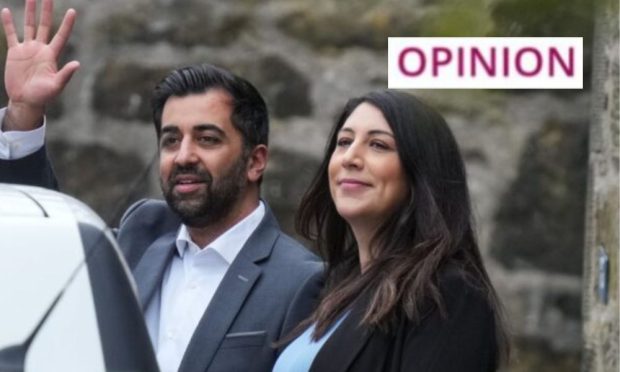The news that two former first ministers have set up limited companies to handle their earnings outside of parliament has unsurprisingly reignited the heated debate about second jobs for politicians.
The latest incarnation of this conversation was sparked by the news Nicola Sturgeon was paid £25,000 for her appearance as a pundit on ITV’s general election special.
Should politicians be allowed to take on lucrative second jobs?
And while we’re at it, should there be specific rules in place about how that income is taxed?
The second jobs row isn’t new. It comes around every six months or so.
Whether at Holyrood or Westminster, it seems politicians aren’t the best people to be objective about what’s right or wrong when it comes to an issue that affects their own bank accounts.
Earlier this year, MPs backed a plan to tighten the rules about what types of second jobs they can take on outside of their parliamentary work.
Barbed comment
Responding to the news Humza Yousaf had set up a limited company with his wife, Dundee councillor Nadia El-Nakla, Scottish Conservative chairman Craig Hoy said: “Humza Yousaf was Nicola Sturgeon’s ‘continuity candidate’ to replace her as first minister and now he’s following her lead again by setting up a company for his outside earnings.
“While this may help him avoid paying the higher tax rates the pair of them inflicted on hard-working Scots, I doubt that any memoir of his time in Bute House will be anywhere near as lucrative as his mentor’s.”
It’s the kind of barbed comment you’d expect a politician to make towards somebody from a rival party, but it is also indicative of the problem.
You wouldn’t have to Google search too hard to find examples of second jobs, creative tax arrangements or dubious expense claims among politicians from any political party.
One week they’re criticising their opponent for something and the next they’re telling us why their colleague is justified for doing the same thing.
SNP struggling to tackle story
And this phenomenon isn’t reserved for the issue of second jobs.
We’ve seen it happen in stories involving politicians accused of sexual misconduct, as well as during the semi-regular debate about whether elected parliamentarians should take the heat out of politics and stop calling each other names.
Being inconsistent in your position might be beneficial for politicians in the short term, but it always trips them up eventually.
Which is why the SNP is struggling to tackle this story head on now, when we all remember what they had to say about Douglas Ross’ second (and third) jobs and Ruth Davidson’s lucrative media appearances back in the day.
Politicians who lambast their opponents for the source and circumstances of their outside earnings often later find themselves on the defensive, caught in a trap of their own making.
The inconsistency in their positions is infuriating. It’s no wonder people are fed up.
Selective outrage
After being let down by so many politicians, on so many occasions, over so many years, the public expects more than just compliance with the rules.
Despite attempts to reform the rules around politicians outside earnings, the lines still aren’t as clear as they should be.
Whether it’s on tax arrangements, the time spent doing outside jobs, or the companies that politicians are taking money from, there are still too many loopholes in the system.
This makes it too easy for politicians to point fingers at others and then dodge criticism when it’s their turn in the hot seat.
Selective outrage is bad for democracy. It only deepens the natural cynicism people feel about politics.
It’s beyond time that politicians focused on addressing the frustration that people feel instead of weaponising it when it is politically convenient to do so.












Conversation